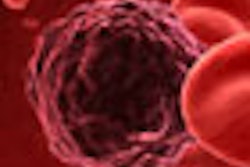Head and neck cancer patients who reported poor sleep quality one year after diagnosis had more symptoms of chronic pain and complaints of dry mouth related to radiation treatments, according to a recent study from the University of Michigan Comprehensive Cancer Center (Laryngoscope, June 2010, Vol. 120:6, pp. 1166-1172).
Because these side effects can be controlled or modified, the study findings suggest that reducing these factors in head and neck cancer patients may be warranted to improve sleep hygiene and enhance quality of life. Previous University of Michigan studies have shown that head and neck cancer patients who reported lower physical quality of life were more likely to die from their disease.
"Sleep disturbances are a common complaint in head and neck cancer patients and have been shown to decrease quality of life, decrease mental health, and serve as a predictor of other complications in the treatment of the cancer. They can also negatively affect the immune system and the ability to deal with stresses of the diagnosis," said senior study author Jeffrey Terrell, M.D., a professor of otolaryngology at the University of Michigan Medical School.
While cancer patients in general have been known to have decreased sleep quality, head and neck cancer patients may have unique issues, such as facial disfigurements and side effects from treatments, that can affect the mouth and throat, added study author Sonia Duffy, Ph.D., R.N., an associate professor of nursing at the University of Michigan School of Nursing and a research assistant professor of otolaryngology at the University of Michigan Medical School.
The researchers surveyed 457 people at three otolaryngology clinics who had been recently diagnosed with head and neck cancer. Participants responded to questions about their physical and emotional quality of life, including pain, sleep health, eating, and respiratory problems. The subjects were then surveyed again one year after diagnosis.
Among those surveyed, the researchers found that sleep quality did not change dramatically from the time of diagnosis to one year after treatment. But quality of sleep at both time points was worse than typical sleep scores for the average person. The researchers suggest that the relatively minor change in sleep quality one year after diagnosis may be due to symptoms and side effects from treatments such as surgery, radiation therapy, and chemotherapy.
Given the high incidence of dry mouth as a side effect of certain drugs that treat depression, doctors should carefully consider which medications may be better tolerated when treating these ailments among head and neck cancer patients, they concluded.
Copyright © 2010 DrBicuspid.com



















